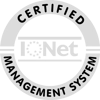Optimizing a supply chain is a fundamental necessity for forward-thinking companies that work closely with suppliers and logistics partners. It involves not only reducing costs and accelerating processes, but also increasing customer satisfaction and adaptability to market changes. Success in supply chain optimization largely depends on a deep understanding of all processes from procurement to delivery and the use of modern technologies.
To make supply chains more efficient, sustainable, and innovative, today’s companies must explore new approaches in logistics and collaboration with their suppliers. Digital transformation, automation, and strategic partnerships not only improve transparency and control but also enable a proactive stance towards market changes and help exceed customer expectations.
In this article, we explore concrete steps for supply chain optimization, from technological innovations to the redesign of processes and partnerships. These actions not only lead to a more efficient supply chain but also provide a crucial competitive advantage. Join us on the journey to an optimized supply chain that future-proofs your business by actively optimizing supply chains and improving logistics processes.

Digitalization and Automation: Laying the Foundation
Optimizing a supply chain starts with digitalization and automation. These critical steps not only transform existing processes but also establish a foundation for enhanced efficiency and continuous improvement. Here is a concise guide to successfully mastering this transformation.
Initiate a Culture Change: An adaptable corporate culture is essential to foster innovation and secure the acceptance of new technologies. This change begins at the top and requires a commitment to continuous learning and development.
Promote Staff Development: Investing in team training is crucial for employees to effectively use new technologies. A well-trained team is key to maximizing the potential of digitalization and automation.
Make Strategic Technology Choices: The selection must be tailored to the specific needs and goals of your company. A strategic choice allows the implementation of solutions that address current challenges and support future growth.
Adjust Processes: With the introduction of new technologies, you should rethink and adjust existing processes to increase efficiency and flexibility. This creates the conditions for a smoother and more responsive supply chain.
Strengthen Partnerships: Reliable partnerships with suppliers and logistics partners are indispensable. Close collaboration promotes transparency and agility, which is crucial for optimizing the supply chain.
By taking these focused steps, you not only lay a solid foundation for optimizing your supply chain but also equip your company for future challenges and opportunities. These measures not only improve operational efficiency but also foster innovation and long-term growth.

Effective Supplier Management: Strategically Optimizing Partnerships and Logistics
In the world of optimized supply chains, effective management of supplier relationships is crucial. The ability to strengthen supply chains through efficient and effective communication with suppliers, defining common goals, and jointly overcoming challenges is essential. Strategic use of specific tools and process automation can better control inventories and enhance the resilience and flexibility of the supply chain. Here are the key elements to strategically utilize your partnerships with suppliers.
Establish Transparent Communication: Open communication is fundamental to minimizing misunderstandings and fostering close cooperation. Modern tools that enable real-time data and feedback are indispensable for realizing an adaptive supply chain. Our DEUFOL SCM software (D-SCS) is an apt example.
Define Common Goals: Harmonizing the goals between your company and the suppliers focuses all parties on shared success. Define clear, measurable objectives that are based on mutual benefit to intensify collaboration.
Integrate Risk Management: A proactive approach to risk management using automated tools for risk detection helps minimize potential disruptions in supply chains. Developing joint strategies for risk reduction is crucial for maintaining supply continuity.
Regularly Assess Performance: Objective assessment of supplier performance using established KPIs is crucial to identify areas for improvement and measure progress. This process should be supported by tools that allow continuous monitoring and analysis of inventory and delivery performance.
Develop Strategic Partnerships: Beyond transactional relationships, companies should build strategic partnerships with key suppliers. Joint investments in innovations and the automation of certain supply chain processes create long-term value for both sides.
Through these strategic approaches, you transform supplier relationships into valuable partnerships that contribute to the optimization of your entire supply chain. These partnerships not only enable handling current challenges but also open doors for future joint successes.

Sustainability in the Supply Chain: A Strategic Imperative
Sustainability has evolved from a trend into a central component of strategic decision-making in supply chains. Companies that design their supply chains sustainably can not only improve their ecological footprint but also increase efficiency, minimize risks, and enhance their brand image. Here are key strategies for successfully integrating sustainability into your supply chain.
Establish Sustainable Procurement Practices: Start by selecting suppliers who demonstrably follow sustainable practices. This includes the use of renewable energy, reduction of waste, and the use of environmentally friendly materials. Transparent criteria for supplier selection promote an ecologically and socially responsible network.
Reduce CO₂ Footprint: Optimizing transportation routes and methods is crucial in reducing the CO₂ footprint of your supply chain. Invest in analysis tools that determine the most efficient route and mode of transportation, and consider using vehicles with alternative power sources.
Promote Circular Economy: Encourage practices that extend the life of products and support the reuse of materials. This can be achieved through design for recycling, taking back products at the end of their life, or promoting repair and maintenance services.
Improve Transparency and Traceability: Utilize technologies such as blockchain to ensure complete transparency about the origins of materials and products. This strengthens consumer trust and facilitates compliance with environmental and social standards.
Foster Engagement and Education: Actively work to raise awareness and promote commitment to sustainability within your company and supply chain. Training and workshops can help highlight the importance of sustainable practices and encourage innovative solutions.
By implementing these strategies, companies can create a supply chain that is not only economically viable but also ecologically and socially sustainable. Such an orientation offers long-term benefits by helping to secure natural resources, strengthening social responsibility, and positioning companies as leaders in sustainability.

Scalability and Flexibility: Mastering Dynamic Growth
Scalability and flexibility are critical factors for companies wanting to remain competitive in a rapidly changing market environment. Adapting the supply chain to changing market conditions and efficiently managing growth phases are central challenges. Here is a concise guide to align your supply chain accordingly.
Establish Flexible Infrastructure: A supply chain infrastructure that can be scaled flexibly at various locations is indispensable. This requires systems and processes that can be adapted without significant difficulties to avoid capacity bottlenecks and seize opportunities.
Technology Platforms for Flexibility: Invest in platforms that not only support, but actively promote growth through their flexibility. Cloud solutions provide the scalability and interfaces necessary for quick adaptation to new requirements or for tapping into new markets.
Data-Driven Strategies: A robust, data-based decision-making process allows for flexibility in responding to market trends. Continuously analyze data to anticipate changes in consumer behavior and proactively adjust your supply chain.
Optimize Network and Interfaces: Optimizing your supplier network and logistic interfaces significantly enhances efficiency. Regular reviews and adjustments of these elements support sustainable growth and reduce delivery times.
Create a Culture of Innovation: A corporate culture that encourages flexibility and innovation is fundamental for scalability. Motivate your team to continuously seek improvements and develop solutions that enhance the adaptability of the supply chain.
By implementing these steps, you equip your supply chain for future growth and changing market conditions. Such an orientation ensures that your company not only meets current challenges but also remains successful and competitive in the long term.

FAQ: Optimizing Your Supply Chain
Here you will find answers to frequently asked questions that focus on key areas such as logistics optimization, inventory management, and the strategic alignment of the supply chain organization. We consider crucial aspects like optimizing inventory levels, timely delivery, and precise demand planning.
How can I make my supply chain more flexible to quickly respond to market changes?
Achieving flexibility in your supply chain involves tightly integrating data flows, applying agile methods in planning, and diversifying your supplier base. This allows for rapid adaptation to changing needs and minimizes delivery delays.
What technologies are crucial for logistics optimization?
Technologies such as the Internet of Things (IoT), artificial intelligence (AI), and advanced analytics tools are crucial for logistics optimization. They enable improved transparency, more accurate predictions, and more efficient processes through automated decision-making. Feel free to read our comprehensive guide on this topic.
How important is traceability within the supply chain?
Traceability is crucial for ensuring transparency throughout the entire delivery process. It not only allows for better control and management of the supply chain but also helps comply with regulatory requirements and boosts customer trust.
How can an effective supply chain organization contribute to increasing customer satisfaction?
An effective supply chain organization significantly contributes to enhancing customer satisfaction by ensuring timely deliveries and high product availability. Optimizing order processing and implementing precise demand planning ensures that customers receive their desired products on time and in expected quality. Transparent communication about the status of orders and deliveries also enhances trust and satisfaction.
To what extent can optimizing inventory management contribute to cost reduction?
By optimizing inventory management, especially through improved demand planning and inventory management, companies can reduce excess stock and significantly lower storage costs. Precisely aligning inventory levels with actual demand prevents unnecessary capital tie-up. We also recommend our corresponding blog article for more information on this topic.

Our DEUFOL Conclusion
In today’s dynamic and interconnected business world, an efficient and adaptive supply chain forms the backbone of successful companies. The challenges of digitalization, the pursuit of sustainable practices, the need for flexible adaptation to market changes, and the importance of effective risk management demand a well-thought-out strategy for optimizing the supply chain. From digitalization and automation to strategic supplier management, the introduction of sustainable practices, and the promotion of resilience and flexibility – all these measures play a crucial role.
In this context, innovative technologies and sustainable approaches are not only responses to ecological and societal demands but also key to enhancing operational efficiency and securing long-term competitive advantages. Companies that actively optimize their supply chains position themselves as leaders in efficiency, sustainability, and innovation.
For businesses looking to embark on this path, DEUFOL stands as an experienced partner. With extensive expertise, forward-looking solutions, and a deep understanding of the specific challenges and opportunities within various industries, we support you in not only optimizing your supply chain but also adapting to the evolving demands of the market.
Contact Us Now for a Personal Consultation
Ready to elevate your supply chain to the next level? A personal consultation with our experts offers you the opportunity to gain deep insights into the optimization possibilities of your supply chain. Let’s tackle the challenges and seize the opportunities of your supply chain together. Contact DEUFOL today to schedule a consultation. Together, we will create a solid foundation for your sustained business success.




